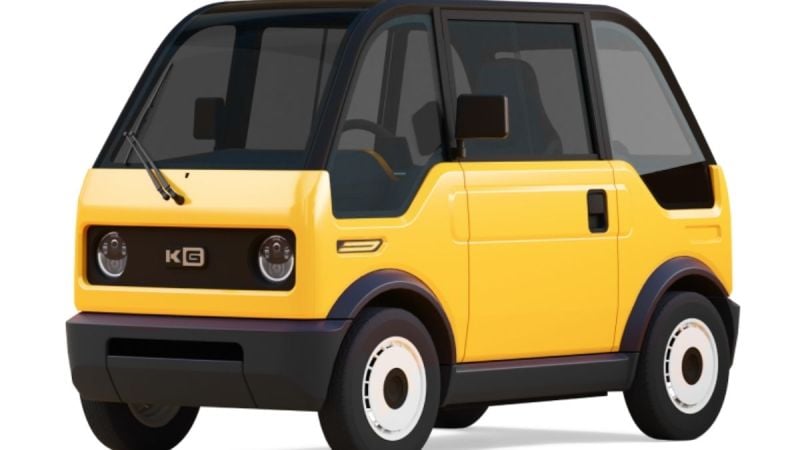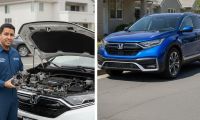Here in in Bend, Or., while our commutes might involve navigating the occasional Subaru-laden roundabout more than Tokyo's famously tight streets, the underlying need for efficient, affordable personal transportation resonates deeply. So, the news that Tokyo-based startup KG Motors has crashed Japan's EV scene with its "Mibot," a sleek, single-seat electric car priced at a jaw-dropping $7,000, has certainly caught our attention. This isn't just another quirky microcar; with over 3,300 pre-orders already – eclipsing Toyota's entire 2024 EV sales in Japan – the Mibot is signaling a potential paradigm shift in urban mobility, one that addresses a crucial, often overlooked need for low-cost, sheltered, single-passenger transport.
Addressing the Unmet Need: The Rise of the Personal Pod
For years, the focus in the EV market has been on larger, family-oriented vehicles, often with price tags that put them out of reach for many. The KG Motors Mibot boldly carves out a different niche: the ultra-compact, budget-friendly EV designed for the individual navigating congested urban environments. Its modest 62-mile range and 37 mph top speed might seem limiting to those accustomed to highway cruising, but for short commutes, errands, and navigating city centers – the very environments where most single-occupant journeys occur – these specifications are perfectly adequate. Think of it as a highly capable, weather-protected alternative to scooters, e-bikes, or even public transport for those seeking a more private and convenient option. In crowded cities like Tokyo, where parking is a premium and squeezing through narrow lanes is a daily reality, the Mibot's diminutive size is not a limitation; it's a significant advantage.
Frugal and Functional: Big Potential in a Small Package
Don't let the Mibot's size or price tag fool you; it appears to pack a practical punch. The inclusion of air conditioning is a significant comfort feature, especially in warmer climates or during stuffy city commutes. The 5-hour charge time from a regular wall outlet further enhances its practicality, eliminating the need for expensive or specialized charging infrastructure for most users. Imagine plugging your Mibot in when you get home and having it fully charged and ready for your next day's errands – as simple as charging your smartphone, but with the added benefit of sheltered transportation. This "no-fuss EV" approach seems to have resonated deeply with Japanese consumers facing the realities of urban living and tight budgets, and the appeal of such a vehicle likely extends far beyond Japan's borders. Here in Bend, even with our more open roads, the Mibot could be an attractive option for students, downtown workers with short commutes, or anyone looking for an incredibly economical and environmentally friendly way to navigate the city.
The Contrast with the Giants: A Startup's Nimble Advantage
The Mibot's impressive pre-order numbers, surpassing Toyota's entire EV sales in Japan for 2024, highlight a critical dynamic: sometimes, it takes a nimble startup to identify and address a specific market need that larger, more established manufacturers might overlook or deem too niche. While Toyota is a global automotive behemoth with significant resources, their EV strategy in their home market has been perceived by some as cautious. The Mibot's success suggests a pent-up demand for precisely the kind of low-cost, ultra-compact EV that KG Motors is offering, a demand that the established players haven't fully satisfied. This echoes historical disruptions where smaller, more focused companies have successfully challenged industry giants by catering to underserved segments of the market.
Beyond Japan: The Global Implications of Micro Mobility
The KG Motors Mibot isn't just a story about a successful Japanese startup; it has broader implications for the future of urban mobility globally. As cities become increasingly congested and concerns about air quality and the cost of living rise, the need for affordable, efficient, and space-saving personal transportation solutions will only intensify. The Mibot's formula – low cost, single-passenger focus, basic but essential features, and ease of charging – could serve as a blueprint for similar vehicles in other urban centers around the world, including here in the United States. Imagine dedicated micro-mobility lanes in our cities filled with these nimble EVs, reducing traffic congestion and parking woes while offering a greener alternative to traditional automobiles for solo commuters.
Addressing Potential Concerns: Range, Speed, and Infrastructure
Of course, the Mibot's limitations in range and speed will make it unsuitable for all drivers and all situations. Longer trips and highway driving will still necessitate larger, more powerful vehicles. However, for a significant portion of urban dwellers, the majority of their daily trips fall well within the Mibot's capabilities. The key to its widespread adoption, beyond price and practicality, will likely lie in the development of appropriate infrastructure and regulations that support micro-mobility solutions. Cities may need to adapt their road layouts and parking policies to accommodate these smaller vehicles effectively.
Wrapping Up: The Mibot's Micro Impact with Macro Potential
The KG Motors Mibot represents more than just a new electric car; it signifies a potential paradigm shift towards prioritizing low-cost, single-passenger sheltered transportation in urban environments. Its impressive pre-order numbers in Japan, surpassing even Toyota's EV sales for the year, underscore a significant unmet need for affordable and practical micro-mobility solutions. While its range and speed might be limited, its focus on basic but essential features, ease of charging, and ultra-competitive price point make it an incredibly attractive option for navigating congested city streets. The Mibot's success could serve as a wake-up call for established automakers and a blueprint for a new wave of personal electric vehicles designed specifically for the realities of modern urban living, potentially sparking a micro-mobility revolution that extends far beyond the bustling streets of Tokyo and into cities worldwide, including our own here in Bend.
Disclosure: Image from KB Motors
Rob Enderle is a technology analyst at Torque News who covers automotive technology and battery developments. You can learn more about Rob on Wikipedia and follow his articles on Forbes, X, and LinkedIn.
Set Torque News as Preferred Source on Google











Comments
We need this car in Canada.
Permalink
We need this car in Canada.